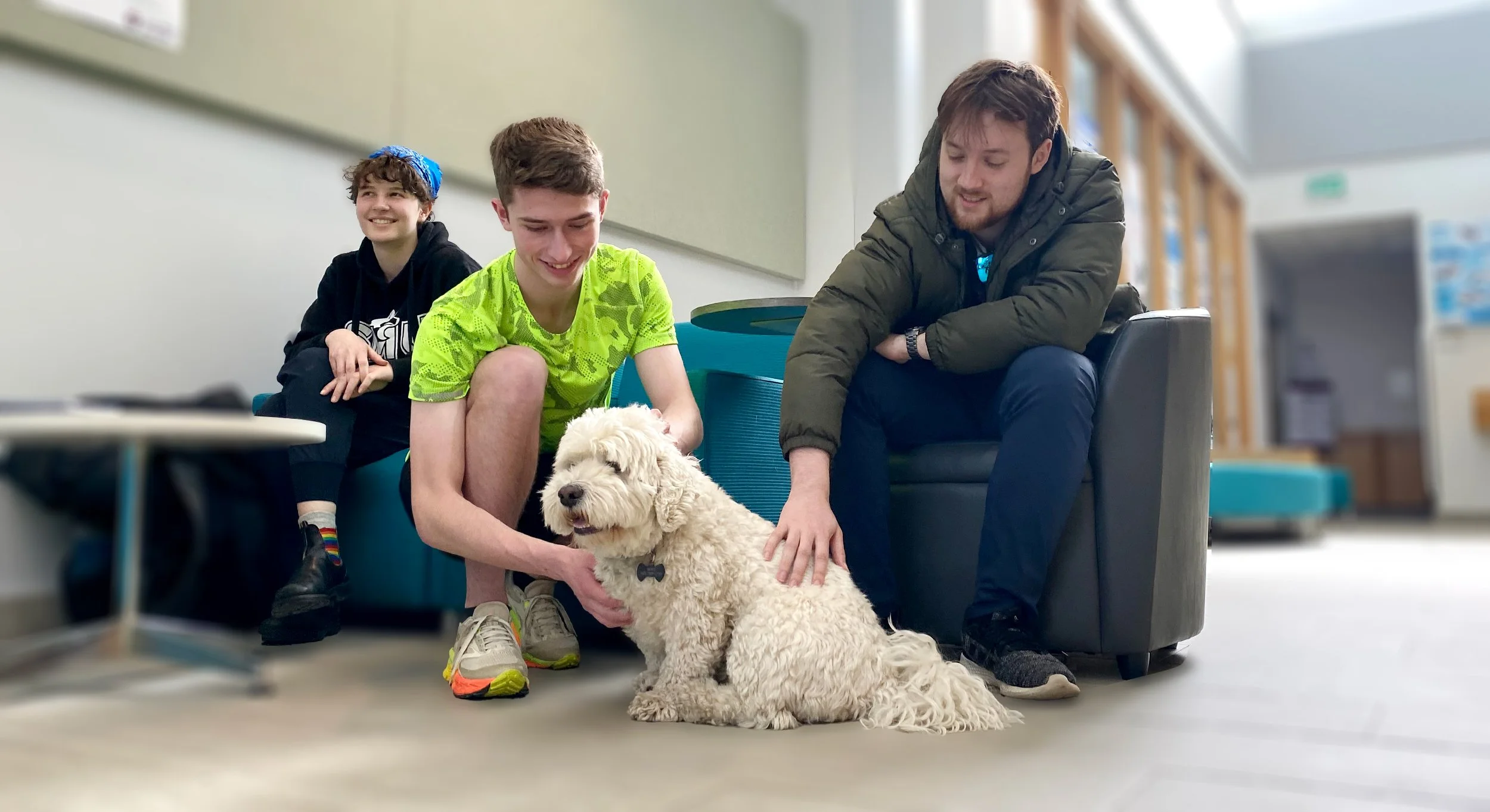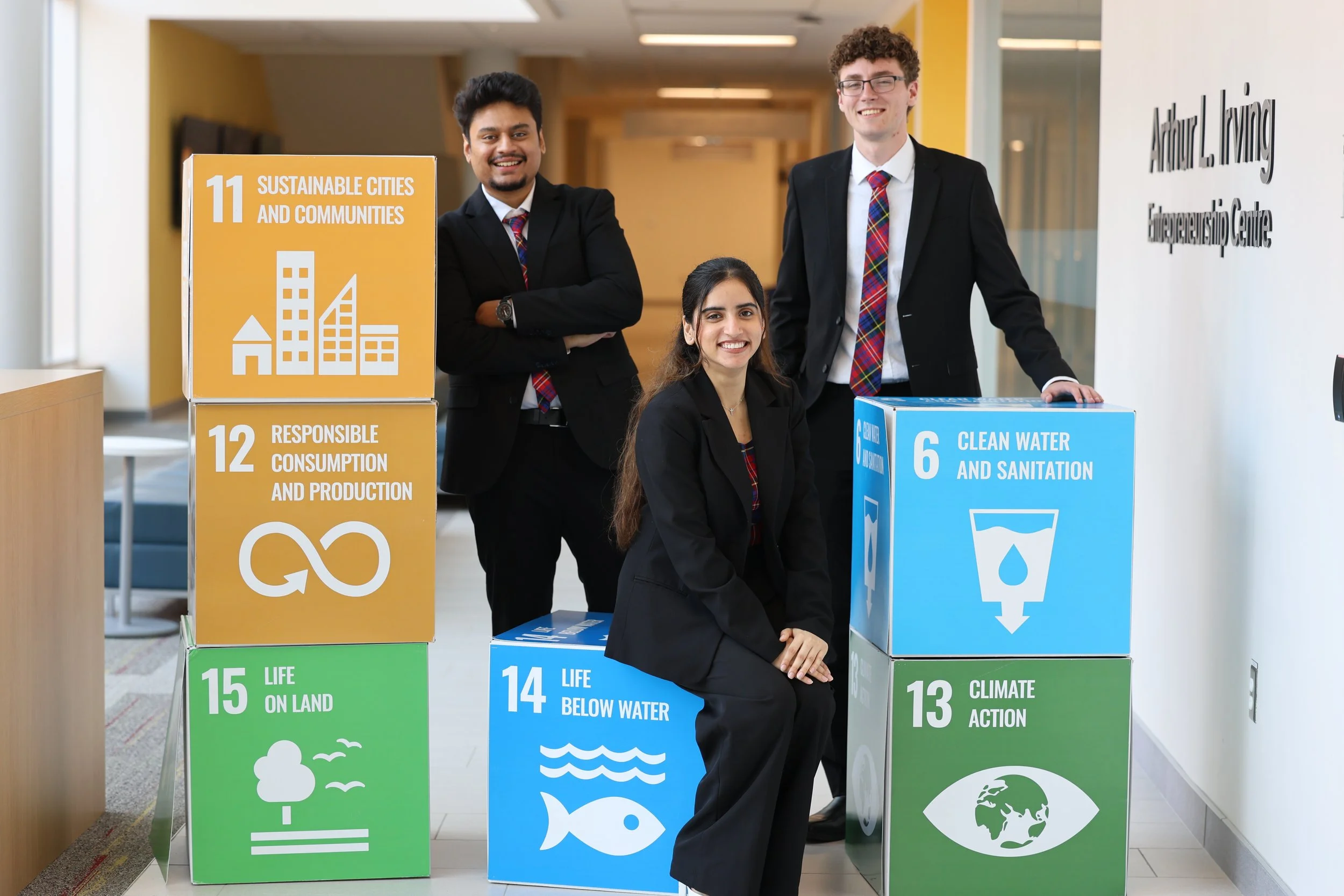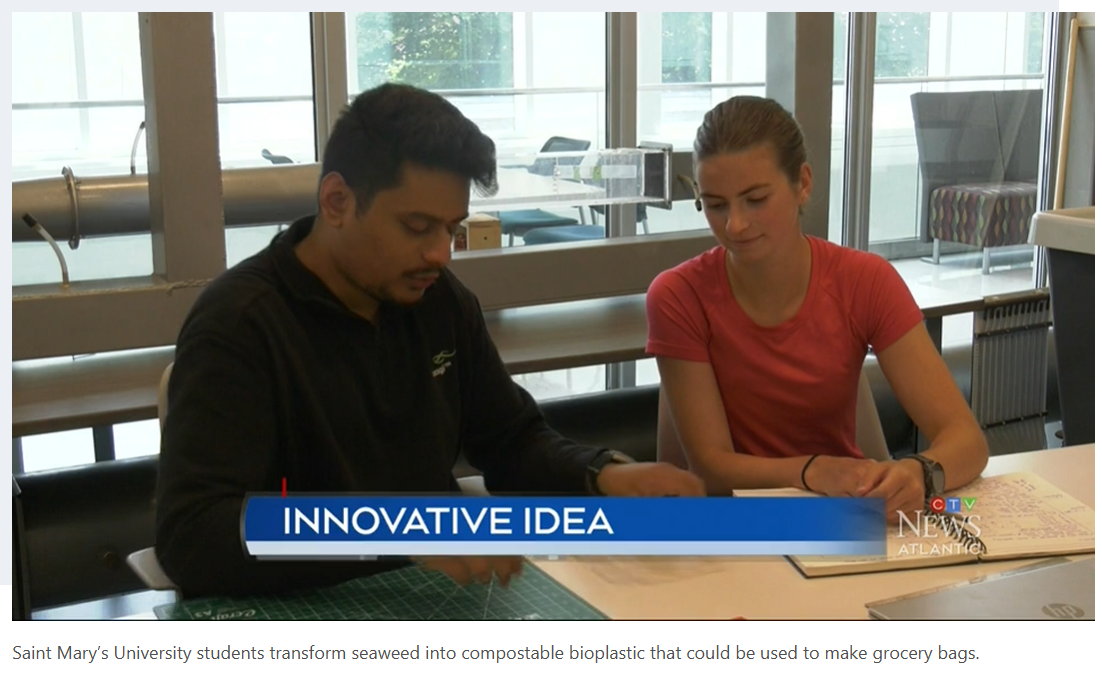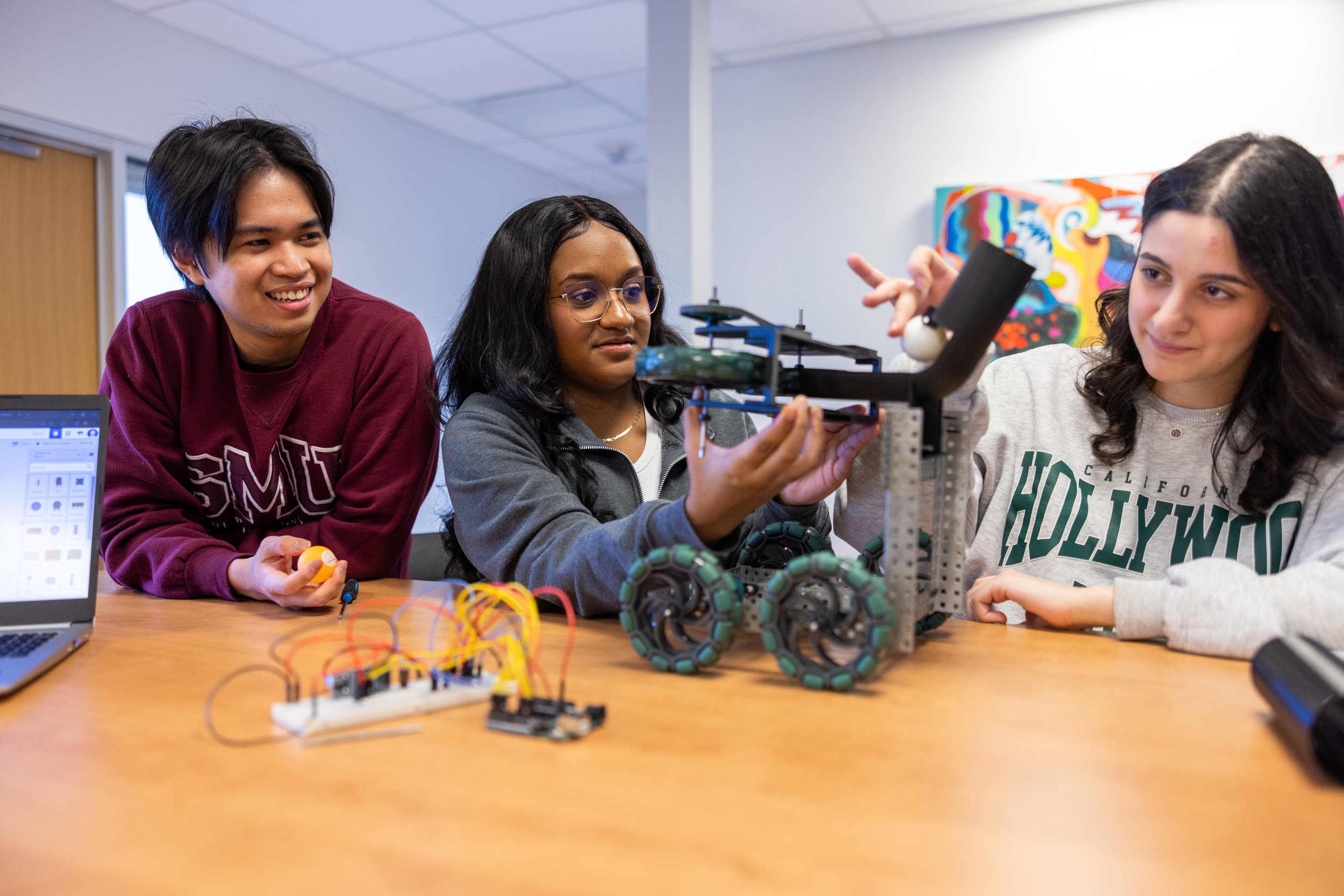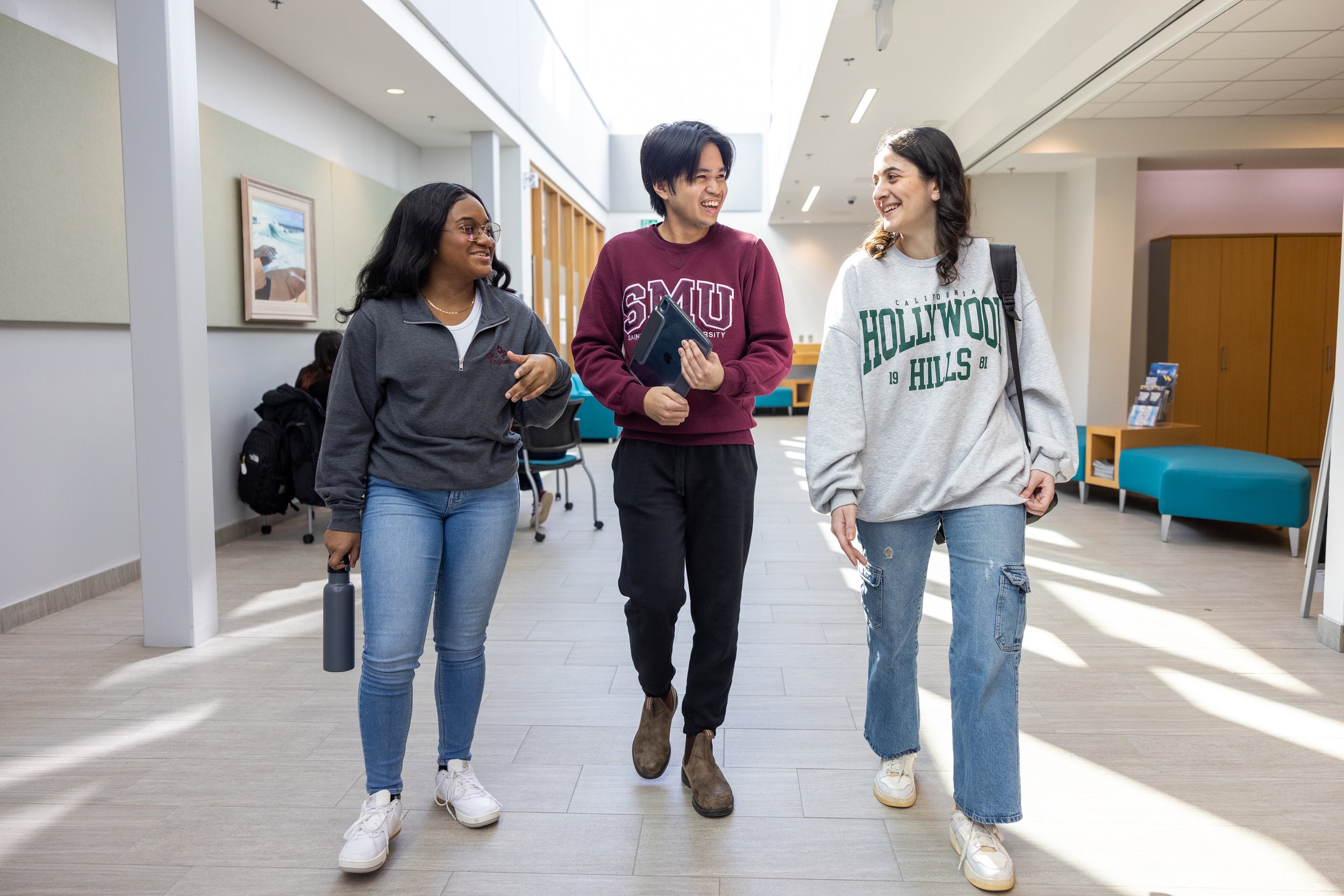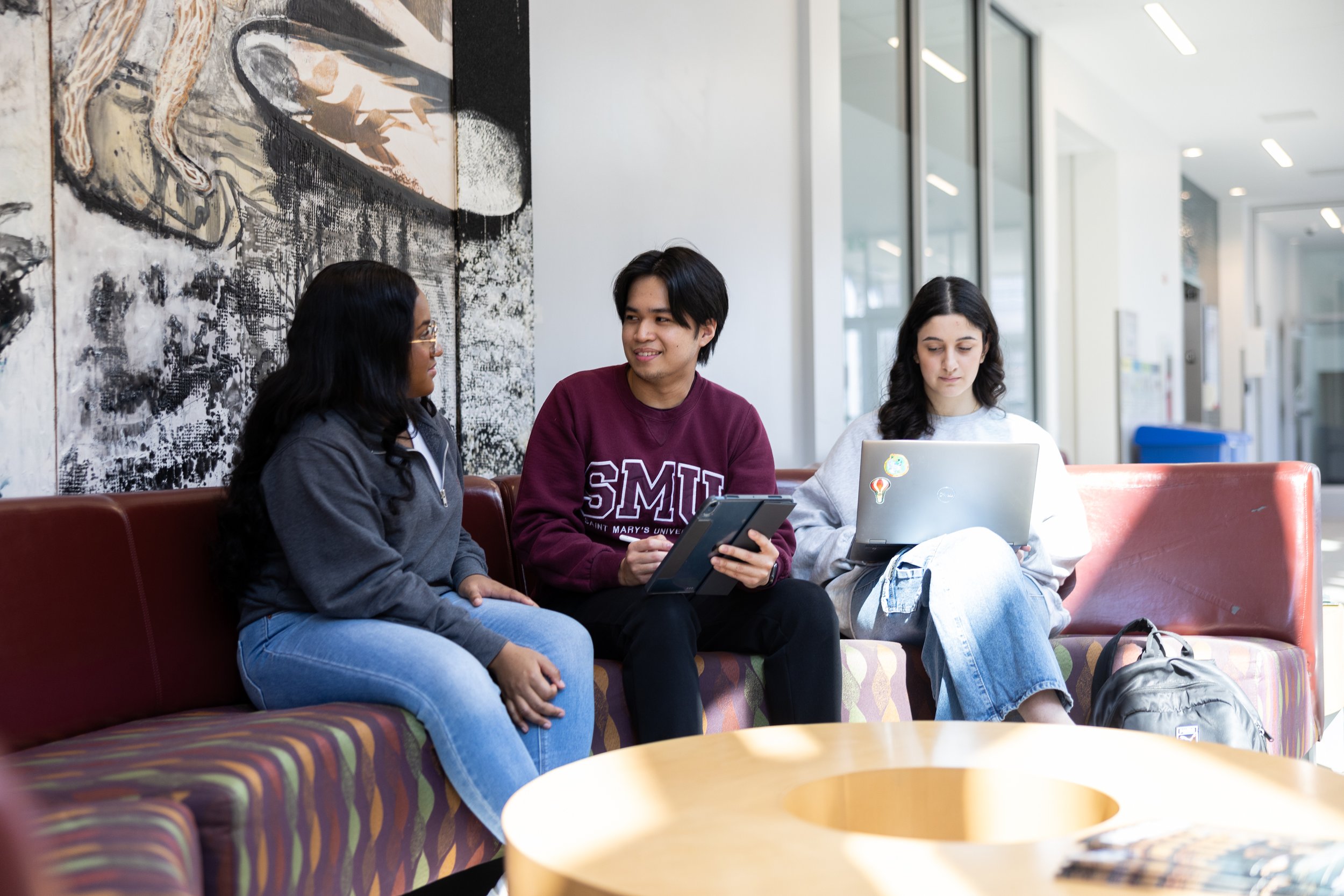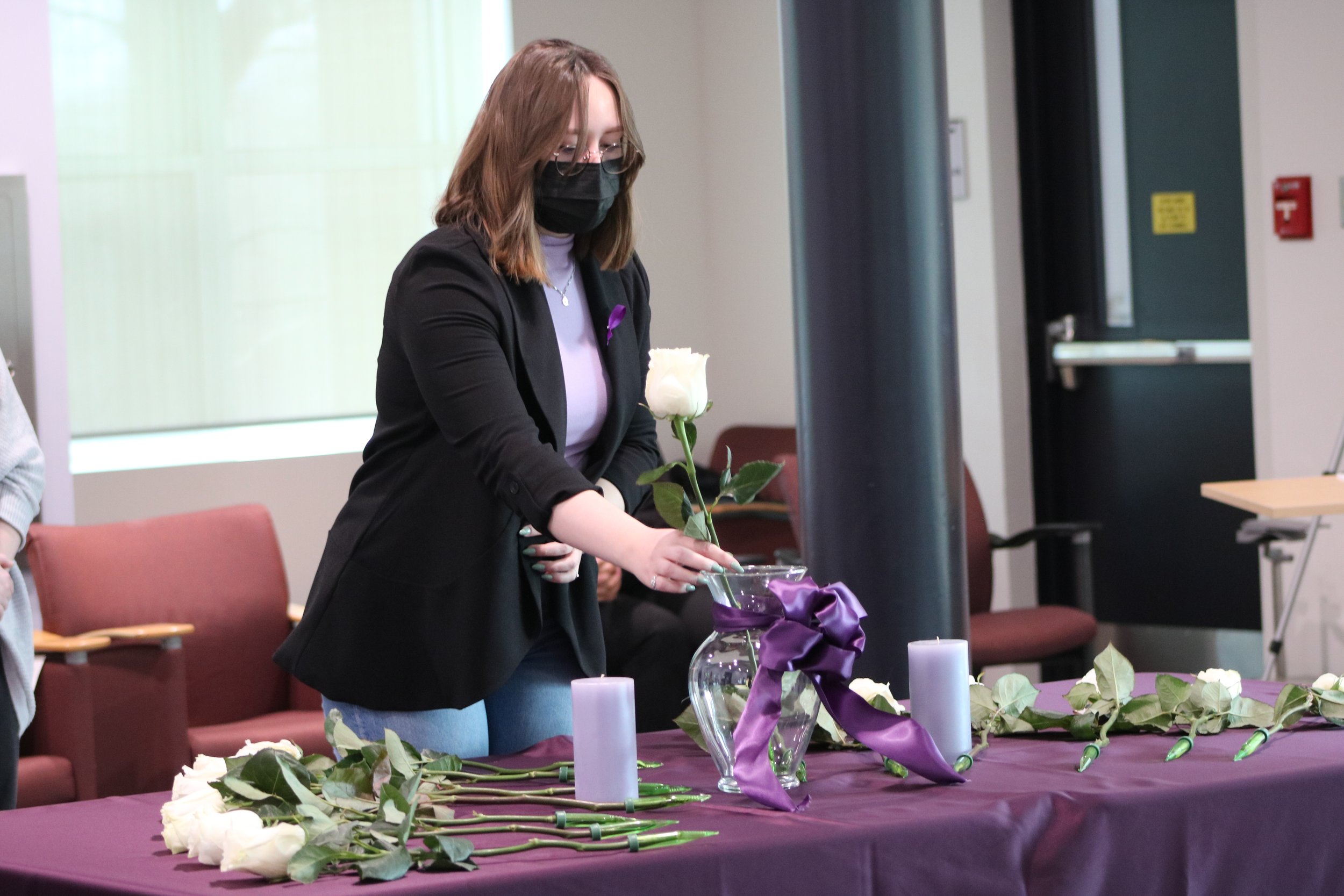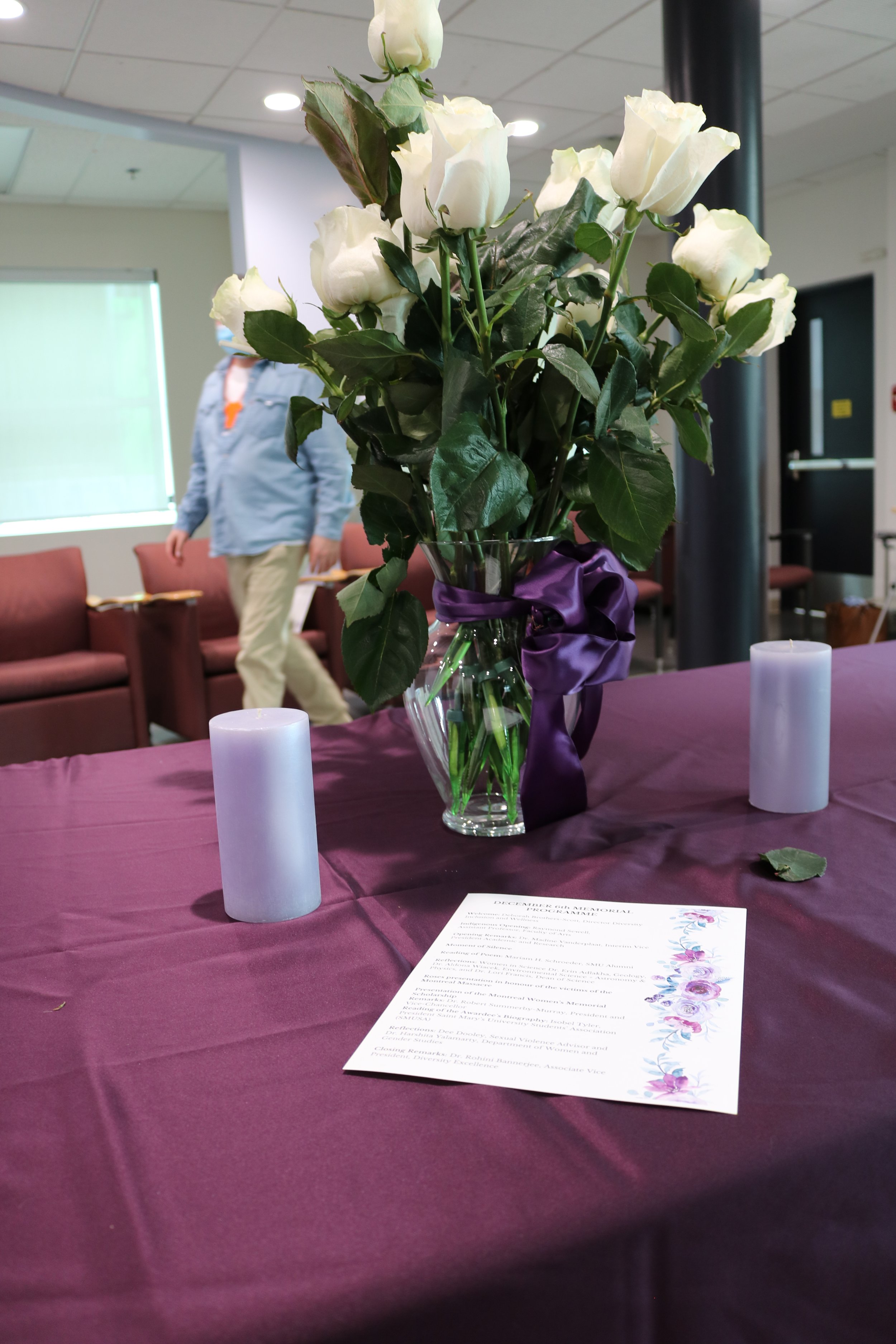



On Monday, December 8, the Saint Mary’s community gathered to commemorate the National Day of Remembrance and Action on Violence against Women. This annual event marks the anniversary of the 1989 mass shooting at École Polytechnique Montréal, when 14 women were killed, and others were injured, in an attack fueled by anti-feminism. The solemn event serves as an essential reminder of the ongoing issue of gender-based violence faced by many across Canada.
Dee Dooley, Saint Mary’s Sexual Violence Advisor, speaks during the ceremony
“We hold this ceremony to honour the lives of the fourteen women who were lost on December 6, 1989 and all victim-survivors of gender-based violence, harassment and discrimination,” said Dee Dooley, Sexual Violence Advisor.
“Each year, a dedicated group of faculty, staff, and students collaborate to take a stand: ensuring that we remember this dark history and work towards equity and inclusion on our campus. I am proud of SMU's commitment to advancing cultural change in an effort to build a safer and more empowering world for all, on this day and every other day of the year.”
The ceremony took place during the 16 Days of Activism Against Gender-Based Violence, which included a number of supportive and community-focused events.
The event also provides a moment of hope and celebration. Each year, a female engineering student is awarded the Montreal Women’s Memorial Scholarship. This year’s recipient is Mishka Hemmings, a first-year student in the Bachelor of Science with a Diploma in Engineering program.
Meet Mishka Hemmings
Mishka Hemmings
Originally from Kingston, Jamaica, Mishka says she chose Saint Mary’s for its small, interactive classes, hands-on approach and availability of professors.
“I chose to study engineering because I love solving real-world problems and creating practical solutions that make life better,” says Mishka. “It allows me to blend creativity with analytical thinking.”
Mishka’s dream of becoming a civil engineer, building safe and lasting structures for people to call home, propelled her to return to school as a mature student. The recent devastation in her home country caused by Hurricane Melissa has strengthened her resolve to succeed.
“Witnessing this tragedy has transformed my dream into a mission: to help rebuild my country stronger, safer, and better than before.”
At 29 years old, it took courage and determination to overcome challenges and return to school. She had always wanted to study engineering, but limited resources and the lack of professional guidance were barriers to overcome. After more than a decade in finance and administration, she was able to pursue this goal.
“The field remains male-dominated, and stepping into it later in life came with doubts and fears, but I refused to let those barriers determine my future,” says Mishka.
Explaining her connection to the 14 women who lost their lives 36 years ago in Montréal, Mishka says she found strength in the stories of women who dared to dream beyond societal expectations.
“The story of one woman in particular, Maud Haviernick, deeply resonates with me,” she says. “Like me, she was 29 years old and already held a degree when she chose to return to her dream in engineering. I believe we shared similar struggles in making that decision, though she faced even greater gender barriers in 1989 than I do today; nonetheless, she still persevered. Her courage continues to inspire me, as she was never able to achieve her dream, but for both of us, I am determined to achieve mine.”







